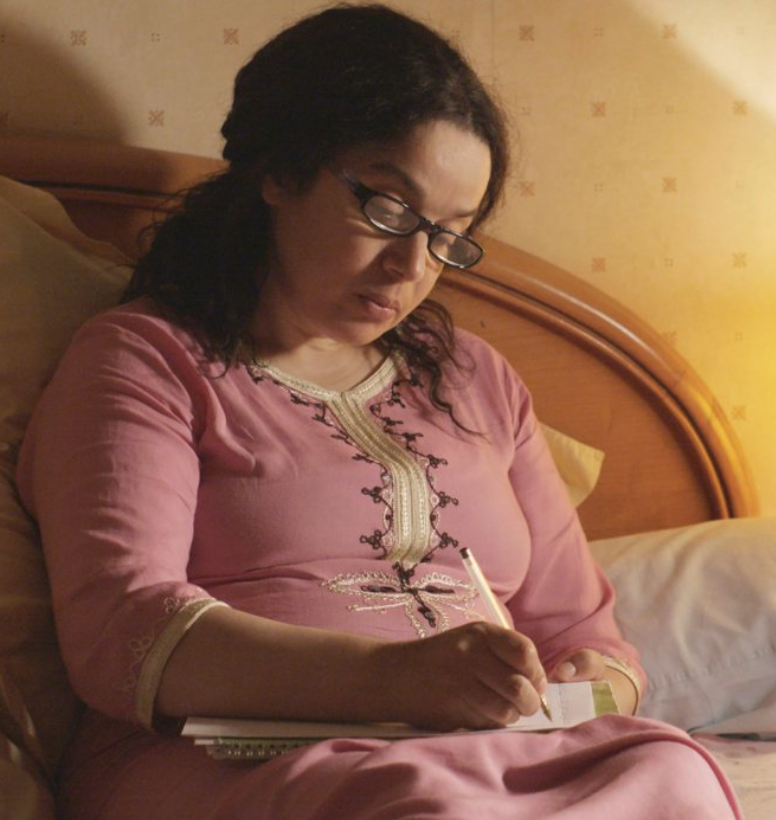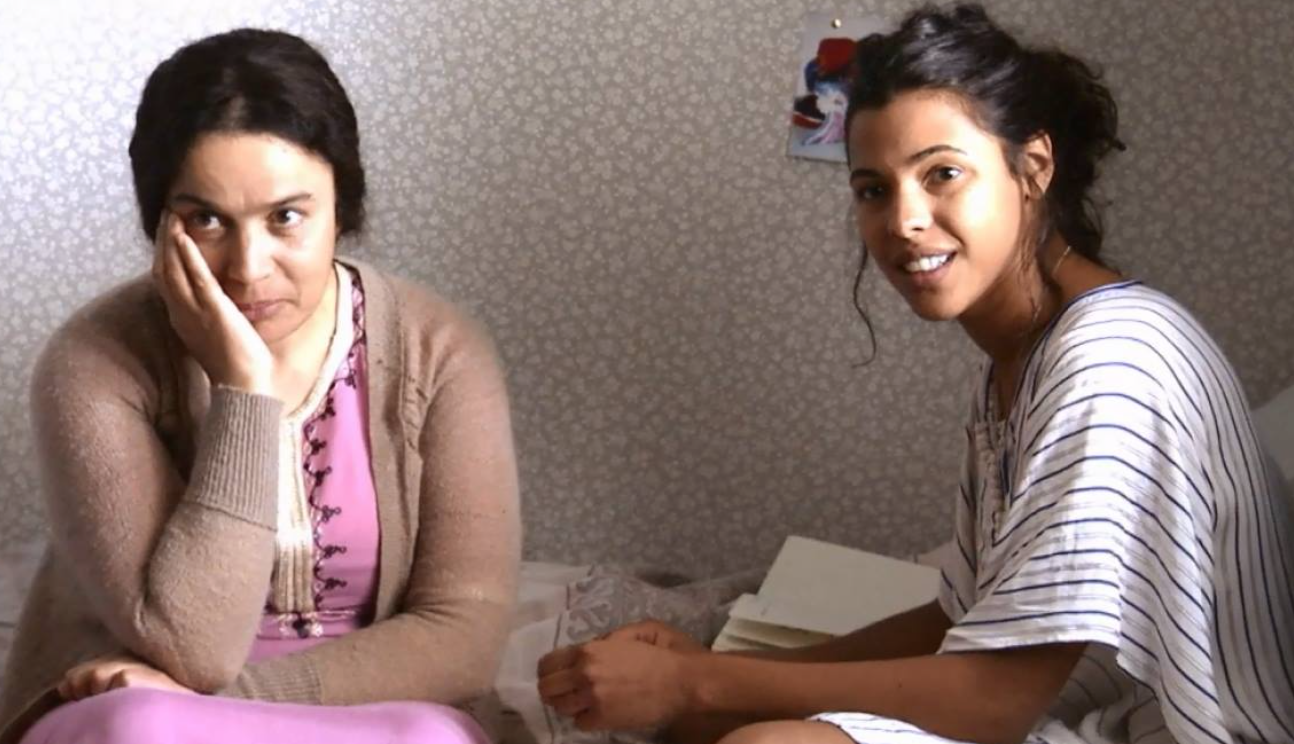 “Fatima” begins slowly and deliberately, and proceeds that way for its entire seventy-eight minutes, like a mother straightening her child’s room. This is appropriate, for it is about an Algerian cleaning woman struggling to raise her two teenage daughters in Lyon, France. The film is a loose adaptation of Priere a la lune (Prayer to the Moon), a short collection of poems and other writings by Fatima Elayoubi, a North African woman who emigrated to France and taught herself the language. Fatima’s onscreen stand-in is played by the nonprofessional actor Soria Zeroual, who really worked as a cleaning woman until being cast in this film.
“Fatima” begins slowly and deliberately, and proceeds that way for its entire seventy-eight minutes, like a mother straightening her child’s room. This is appropriate, for it is about an Algerian cleaning woman struggling to raise her two teenage daughters in Lyon, France. The film is a loose adaptation of Priere a la lune (Prayer to the Moon), a short collection of poems and other writings by Fatima Elayoubi, a North African woman who emigrated to France and taught herself the language. Fatima’s onscreen stand-in is played by the nonprofessional actor Soria Zeroual, who really worked as a cleaning woman until being cast in this film.
At times, Zeroual’s lack of acting experience is all too evident – her high, trailing voice can grate; her motions and features can seem frozen – but soon enough you see what director Philippe Faucon saw in her: an unadulterated steadiness that shores her children – and this film – in the face of all adversity. With her veiled head, stricken expression, and broken French, Fatima encounters micro – and macro – aggression daily, yet remains undeterred as she spends long hours cleaning a local factory and the houses of unhappy, wealthy women. Nothing can sway her from the goal of supporting Nesrine (Zita Hanrot), her eighteen-year-old daughter in medical school, and Souad (Kenza Noah Aiche), her fifteen-year-old daughter who is as surly with her mother as she is with her schoolmates and teachers. Fatima’s ex-husband is seemingly of no use, though he occasionally makes an appearance with the girls. It is meaningful that we never learn his name.
Daily life is a strain for all three of these women: Nesrine finds her studies grueling to the brink of impossibility, and is terrified about disappointing the mother who is making great sacrifices to ensure her success. Fatima injures herself, negotiates judgmental neighbors and brutal bureaucracies, and struggles to protect her daughters from a world she barely understands. And silky, sulky Souad refuses to do her schoolwork or even attend her classes; as the youngest, she is the most French of the three but also the most cognizant of the daily injustices her family negotiates. Best are scenes when she flirts with the schoolboys whom she swats away with a pleasure that otherwise never tips her lips.
Especially in scenes between Fatima and her female employers, this film suggests the universal difficulties of parenting adolescent girl-children are amplified by the shame and anger surrounding the immigration experience. Offspring that age are engineered to reject their parents so that they may individuate themselves, but this process is deeply complicated by the mixture of guilt, embarrassment, and protectiveness in the children of immigrants. We are shown this, never told this, and it is most apparent in the sweet sadness of both Souad and Nesrine as they receive their mother’s offerings: the beautiful food she carefully places in her elder daughter’s refrigerator, the timid way she rubs her sneery younger daughter’s back.
Just writing about those moments are enough to make me tear up again, for Fatima’s unflagging dedication to her daughters boasts a purity of heart that transcends the slight pokiness of this plotting. (At times, the film’s steadiness grows mulish.) Eventually, like many parents of teenagers, she realizes the best way to caretake her children is to caretake herself, and begins to keep a journal in which she writes the poetry that inspires this narrative. Her words are simple, stirring, heartbreaking. They connect her to her core, and eventually rethread her family. “I speak the way I speak,” she says. It’s not just an acknowledgment of her poor French but a celebration that she has found her voice.
 “Fatima” is not a story about the inevitability of change so much as it is about the possibility of change for those who refuse to be deterred. It is not a coincidence that this film describes the immigrant experience as well as the experience of parenting; both require a quiet strength that too often goes unnoticed. Marge Piercy writes, “History records no progress people did not sweat and dare to push.” Never a downer but always clear-eyed, “Fatima” soars because it dares to toil.
“Fatima” is not a story about the inevitability of change so much as it is about the possibility of change for those who refuse to be deterred. It is not a coincidence that this film describes the immigrant experience as well as the experience of parenting; both require a quiet strength that too often goes unnoticed. Marge Piercy writes, “History records no progress people did not sweat and dare to push.” Never a downer but always clear-eyed, “Fatima” soars because it dares to toil.
This was originally published on Signature.
